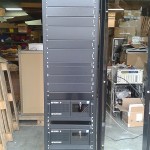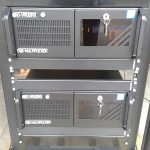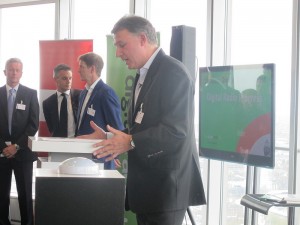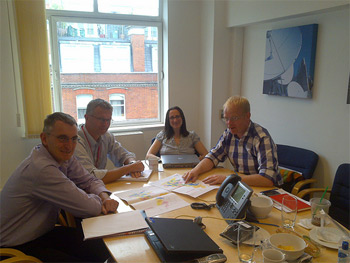
The UK Government published its Digital Britain White Paper on 16 June. The key points of the report in relation to radio are:
Digital migration
• Confirmation of a digital radio “upgrade” by the end of 2015 (and which will be confirmed at least two years in advance).
• All national and local services currently on DAB to migrate from analogue.
• Small ultra-local stations and community radio to upgrade from MW to FM, or remain on FM.
• Target for criteria (i.e. 50% of listening to be digital; national DAB coverage comparable to FM; and local DAB to reach 90% of population) to be met by 2013.
• Five point plan for DAB in vehicles, supported by major car manufacturers including Ford and Vauxhall.
DAB coverage
• BBC to achieve comparable coverage to FM for its national multiplex by the end of 2014.
• BBC to bear significant proportion of the costs of local DAB coverage roll-out.
• Some cost savings delivered by Digital Britain to be re-invested to support transmitter investment.
• Government will support a re-plan of local and regional DAB (merging multiplexes where agreed, and creating a second national multiplex).
The White Paper is very positive and is supported cross party.
In overall terms, we at Folder Media / MuxCo support the proposals in the White Paper, which we believe will help underpin DAB.
In summary:
• We support a set date for switch over, rather than a rolling set of criteria. This gives a clear flag to achieve, and we feel confident that the radio industry will be able to achieve the criteria by 2013.
• We have always advocated that DAB is one of several digital radio platforms, and is likely to continue to be the primary terrestrial platform in the short to medium term, and hopefully longer.
• We support the proposal for clear labelling of the DAB technology.
• We have been involved in the initial industry discussions about converting the regional DAB layer into the basis of a second national layer and in principle support the proposal.
• We have been involved in the initial industry discussions about ‘merging’ multiplex areas. We support the view that where such mergers make economic and efficiency sense for both multiplex operators and service providers, then the multiplex operator should have the right to approach Ofcom to merge, but that merging should not be artificially forced upon multiplexes. In addition, any re-plan needs to take account of potential long term interest rather than a short term view.
• We have always stated that functionality and interactivity will be the bedrock of DAB, hence our intention to hold capacity for the provision of data rather than audio services. We currently maintain a watching brief on this aspect of the opportunity, as whilst we can create services, we need devices on which they can operate. To that end, we have good relationships with a number of manufacturers.
Through the MuxCo application process we interviewed thousands of people who are current DAB listeners as well as those who had not yet taken the plunge. Current listeners are nearly all huge advocates for the technology and how it has improved their radio listening. We’re keen to work hard to make digital radio an even better proposition – coverage, content and features – and we’ll work strongly with all radio operators and the Government to provide a service that betters listeners’ analogue radio experience and keeps radio a vibrant medium.





